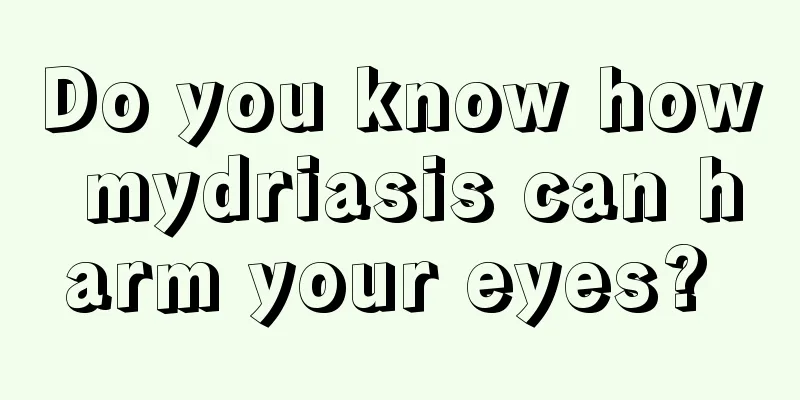What should I do if my child is allergic to ultraviolet rays

|
Ultraviolet allergy refers to some abnormal allergic reactions caused by sunlight to the human body. It is an immune reaction. As long as there are photosensitive substances in the human body, a reaction will occur after exposure to ultraviolet rays, mainly in exposed parts such as the face, neck and arms. Erythema, papules and blisters often appear, and the pigmentation will be significantly darker. It is more serious in spring and autumn. What should I do if my child is allergic to ultraviolet rays? This condition is also called solar dermatitis. The symptom of skin allergy is itching in the areas exposed to the sun. The longer the exposure to the sun, the more severe the allergic reaction will be. The itching will last for 24 to 48 hours or even longer. Ultraviolet rays in sunlight may cause cataracts. Since the damage to the eyes caused by sunlight is not easily noticed by patients in the short to medium term, its potential threat cannot be ignored. Factors that cause UV allergies Foods that can cause ultraviolet allergies: celery, lettuce, rapeseed, spinach, amaranth, Chinese cabbage, astragalus, gray vegetable, mustard greens, amaranth, purslane, safflower, fig, sheep's foot root, lemon, white radish, coriander, leek, etc. all contain photosensitive substances, etc., and they are all photosensitive plants. If you consume these plants in excess and then stay in the sun, you will experience symptoms of ultraviolet allergy. Treatment and maintenance Western medicine and Western medicine generally give anti-allergic drugs to relieve allergic symptoms for ultraviolet allergies, and conventional treatments only treat the symptoms but not the root cause; Traditional Chinese medicine focuses on syndrome differentiation and treatment, based on clearing away heat and detoxification, removing dampness and relieving itching, and treating according to different types of symptoms; Since UV allergy is an immune reaction, it requires long-term care. For those with severe skin symptoms, Chinese and Western medicine combined treatment can be used. 1. Use mild, weakly acidic cleaning products to protect your skin from being damaged by alkaline detergents; 2. Use wet compresses that can clear away heat, detoxify, remove dampness and relieve itching; 3. Use mild and safe products to protect skin moisture; 4. Use sunscreen products with mild sun protection effect; 5. Use sunscreen to block direct sunlight from contacting your skin. In order to prevent this disease, in addition to reducing exposure to ultraviolet rays, you should also pay attention to your daily conditioning, get more rest, avoid overwork, do proper exercise, eat more anti-allergic foods, eat less photosensitive foods such as celery, spinach, etc., and do not eat foods with artificial additives. Try to eat less food that can generate heat in the body. |
<<: How to treat allergic eczema?
>>: What should I pay attention to after double eyelid surgery
Recommend
How to eliminate the odor in the refrigerator
The refrigerator is one of the indispensable hous...
How to treat fibroids quickly
How to treat fibroids quickly? After the diagnosi...
Does it hurt to pull out a toenail?
Many people will ask whether it hurts to pull out...
When I wake up in the morning, my eyes are full of eye mucus
Waking up in the morning with eyes full of eye mu...
What is the most effective way to tighten the abdomen
People with abdominal obesity are quite common. F...
Do mites cause hair loss?
Mites are a type of rapidly reproducing parasite....
Post-root canal inflammation
I believe everyone knows that root canal treatmen...
Is it safe to purify blood with ozone?
Ozone is the main component of the atmosphere and...
What to do if you have lost your eyesight and have many dreams and poor sleep quality
According to surveys, today's adults sleep le...
What should I do if my spine bends to the left?
Spinal problems are one of the difficult and comp...
Is it effective to get a vaccine to prevent uterine cancer after menopause?
Uterine cancer is a malignant tumor disease with ...
Let me introduce to you the causes of reflux after cardiac cancer surgery
Surgical treatment of cardia cancer is a common t...
How do I know if I am calcium deficient
We all know that calcium is particularly importan...
What are the examination measures for primary liver cancer? Tips for imaging diagnosis of primary liver cancer
For the treatment of primary liver cancer, it is ...
Is bladder cancer contagious?
Bladder cancer is the most common malignant tumor...









